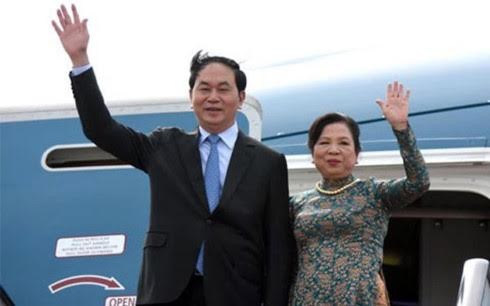 President Tran Dai Quang begins an official visit to Belarus President Tran Dai Quang begins an official visit to Belarus
|
Since the two countries established diplomatic ties 25 years ago, the socio-economic cooperation between Vietnam and Belarus has developed rapidly. In its Asian foreign policy, Belarus prioritizes cooperation with Vietnam. The two countries intend to establish a strategic partnership.
Vietnam is one of Belarus’s traditional trade partners in Southeast Asia. In the last ten years, two-way trade has tripled but is still short of its potential. Belarus exports to Vietnam fertilizer, tires, engines, electronics, and other high tech products and imports garments, textiles, seafood, tea, and coffee. The free trade agreement between Vietnam and the Eurasion Economic Union signed last year has created prospects for bilateral trade and economic cooperation. The two sides are shifting from trade cooperation to boosting industrial links. Vietnamese enterprises have taken advantage of Belarus’s modern infrastructure and support to penetrate the eastern European market.
Approximately 70,000 Vietnamese students are studying in Belarus. The Vietnam-Belarus Committee for Science and Technology Cooperation has met 8 times. Vietnamese workers have been sent to build a sports center in Minsk. The two sides signed an inter-governmental agreement on contract labor in 2013. They set up Solidarity Friendship Associations in both countries. There are 600,000 Vietnamese working and living in Belarus.
New prospects for bilateral ties
Vietnam and Belarus are determined to further strengthen bilateral ties to promote the two countries’ interests. Speaking to reporters prior to his visit, President Quang highlighted the two countries’ potential for further bilateral cooperation in economics, trade, security, national defense, education, and training.